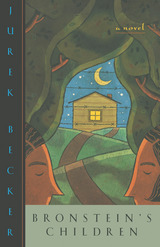
"[A] chilly, disquieting novel about historical slippage; about the seemingly inevitable decline of horror into a vague and generic recollection. The East German writer has devised something between story and allegory to evoke the cold generational millennium that separates a father, with his concentration-camp memories, from a son, adrift in a society with no memories whatsoever."—Richard Eder, Los Angeles Times Book Review
"Mr. Becker, writing simply and clearly in an unstrained narrative, speaks with the voice of knowledge, and we do well to listen to him."—Eva Figes, New York Times Book Review
Jurek Becker (1937-1998) is the author of Jacob the Liar, Sleepless Days, The Boxer, and Amanda Herzlos.

Genia spent two years in Auschwitz. Ze'ev fought with the Partisans. Olga hid in the Aryan section of Warsaw. Anya fled to Russia. Laura lived in Libya under the Italian fascist regime. All five survived the Holocaust, emigrated to Israel, and started families there. How the traumatic experience of these survivors has been transmitted, even transformed, from one generation to the next is the focus of Fear and Hope.
From survivors to grandchildren, members of these families narrate their own stories across three generations, revealing their different ways of confronting the original trauma of the Holocaust. Dan Bar-On's biographical analyses of these life stories identify several main themes that run throughout: how family members reconstruct major life events in their narratives, what stories remain untold, and what is remembered and what forgotten. Together, these life stories and analyses eloquently explore the intergenerational reverberations of the Holocaust, particularly the ongoing tension between achieving renewal in the present and preserving the past. We learn firsthand that the third generation often exerts a healing influence in these families: their spontaneous questions open blocked communications between their parents and their grandparents. And we see that those in the second generation, often viewed as passive recipients of familial fallout from the Holocaust, actually play a complex and active role in navigating between their parents and their children.
This book has implications far beyond the horrific reality at its heart. A unique account of the interplay between individual biography and wider social and cultural processes, Fear and Hope offers a fresh perspective on the transgenerational effects of trauma--and new hope for families facing the formidable task of "working through."
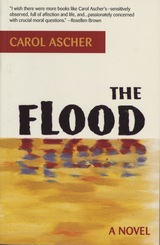
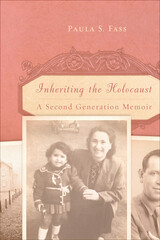
Fass begins her journey through time and relationships when she travels to Poland and locates birth certificates of the murdered siblings she never knew. That journey to recover her family's story provides her with ever more evidence for the perplexing reliability of memory and its winding path toward historical reconstruction. In the end, Fass recovers parts of her family's history only to discover that Poland is rapidly re-imagining the role Jews played in the nation's past.
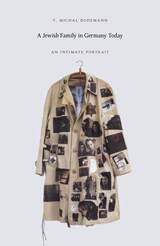
Among the Kalman cousins are an art gallery owner, a body builder, a radio personality, a former chief financial officer of a prominent U.S. bank, and a sculptor. They discuss Zionism, anti-Semitism, what it means to root for the German soccer team, Schindler’s List, money, success, marriage and intermarriage, and family history. They reveal their different levels of engagement with Judaism and involvement with local Jewish communities. Kalman is a pseudonym, and their anonymity allows the family members to talk with passion and candor about their relationships and their lives as Jews.
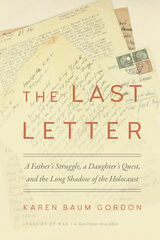
A Good Morning America Pick of the Week!
Born a German Jew in 1915, Rudy Baum was eighty-six years old when he sealed the garage door of his Dallas home, turned on the car ignition, and tried to end his life. After confronting her father’s attempted suicide, Karen Baum Gordon, Rudy’s daughter, began a sincere effort to understand the sequence of events that led her father to that dreadful day in 2002. What she found were hidden scars of generational struggles reaching back to the camps and ghettos of the Third Reich.
In The Last Letter: A Father’s Struggle, a Daughter’s Quest, and the Long Shadow of the Holocaust, Gordon explores not only her father’s life story, but also the stories and events that shaped the lives of her grandparents—two Holocaust victims that Rudy tried in vain to save in the late 1930s and early years of World War II. This investigation of her family’s history is grounded in eighty-eight letters written mostly by Julie Baum, Rudy’s mother and Karen’s grandmother, to Rudy between November 1936 and October 1941. In five parts, Gordon examines pieces of these well-worn, handwritten letters and other archival documents in order to discover what her family experienced during the Nazi period and the psychological impact that reverberated from it in the generations that followed.
Part of the Legacies of War series, The Last Letter is a captivating family memoir that spans events from the 1930s and Hitler’s rise to power, through World War II and the Holocaust, to the present-day United States. In recreating the fatal journeys of her grandparents and tracing her father’s efforts to save them an ocean away in America, Gordon discovers the forgotten fragments of her family’s history and a vivid sense of her own Jewish identity. By inviting readers along on this journey, Gordon manages to honor victim and survivor alike and shows subsequent generations—now many years after the tragic events of World War II—what it means to remember.
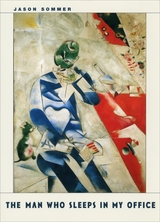
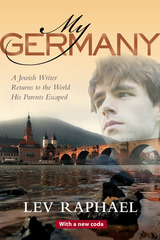
Haunted by his parents’ horrific suffering and traumatic losses under Nazi rule, Lev Raphael grew up loathing everything German. Those feelings shaped his Jewish identity, his life, and his career. While researching his mother’s war years after her death, he discovers a distant relative living in the very city where she had worked in a slave labor camp, found freedom, and met his father. Soon after, Raphael is launched on book tours in Germany and, in the process, redefines himself as someone unafraid to face the past and let it go.
Bookmarks, “Top Ten Nonfiction Titles of 2009”
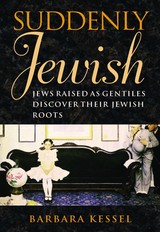
READERS
Browse our collection.
PUBLISHERS
See BiblioVault's publisher services.
STUDENT SERVICES
Files for college accessibility offices.
UChicago Accessibility Resources
home | accessibility | search | about | contact us
BiblioVault ® 2001 - 2024
The University of Chicago Press









